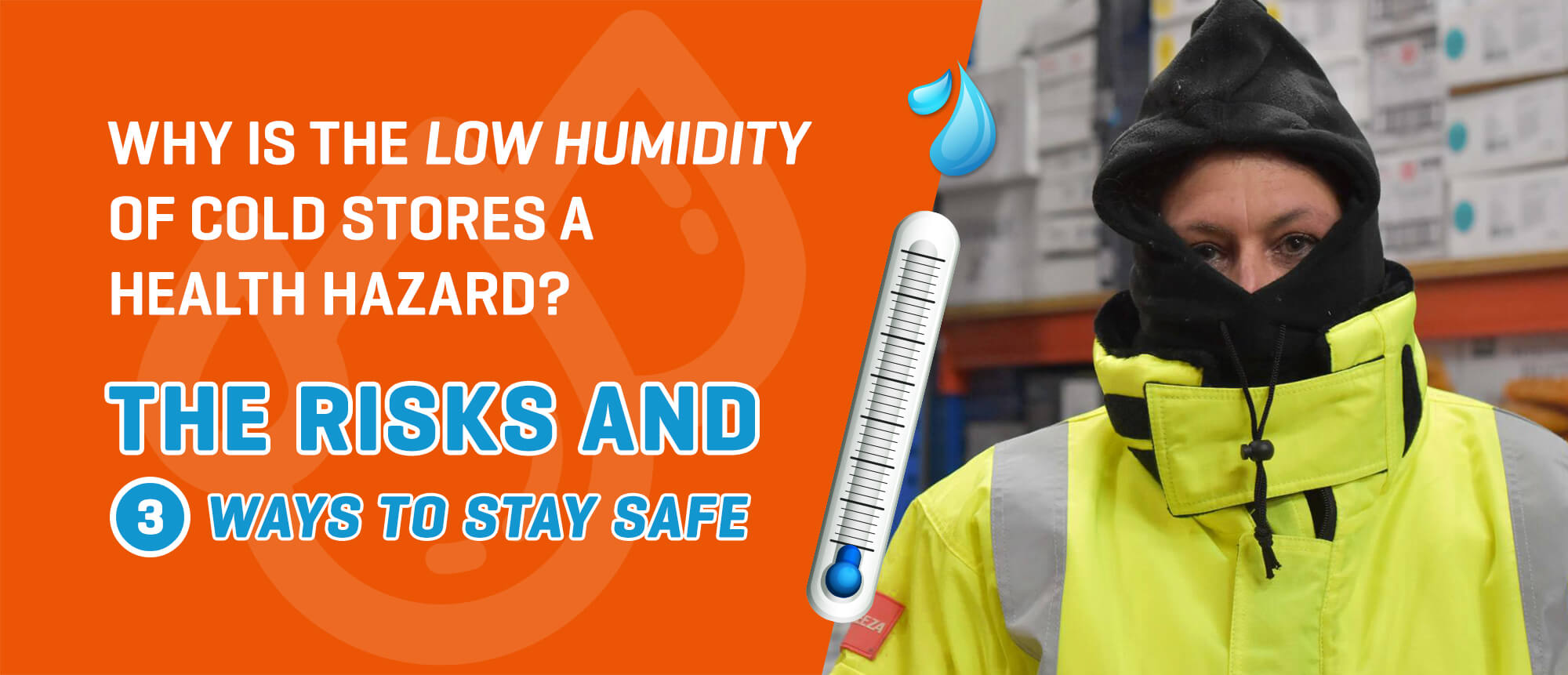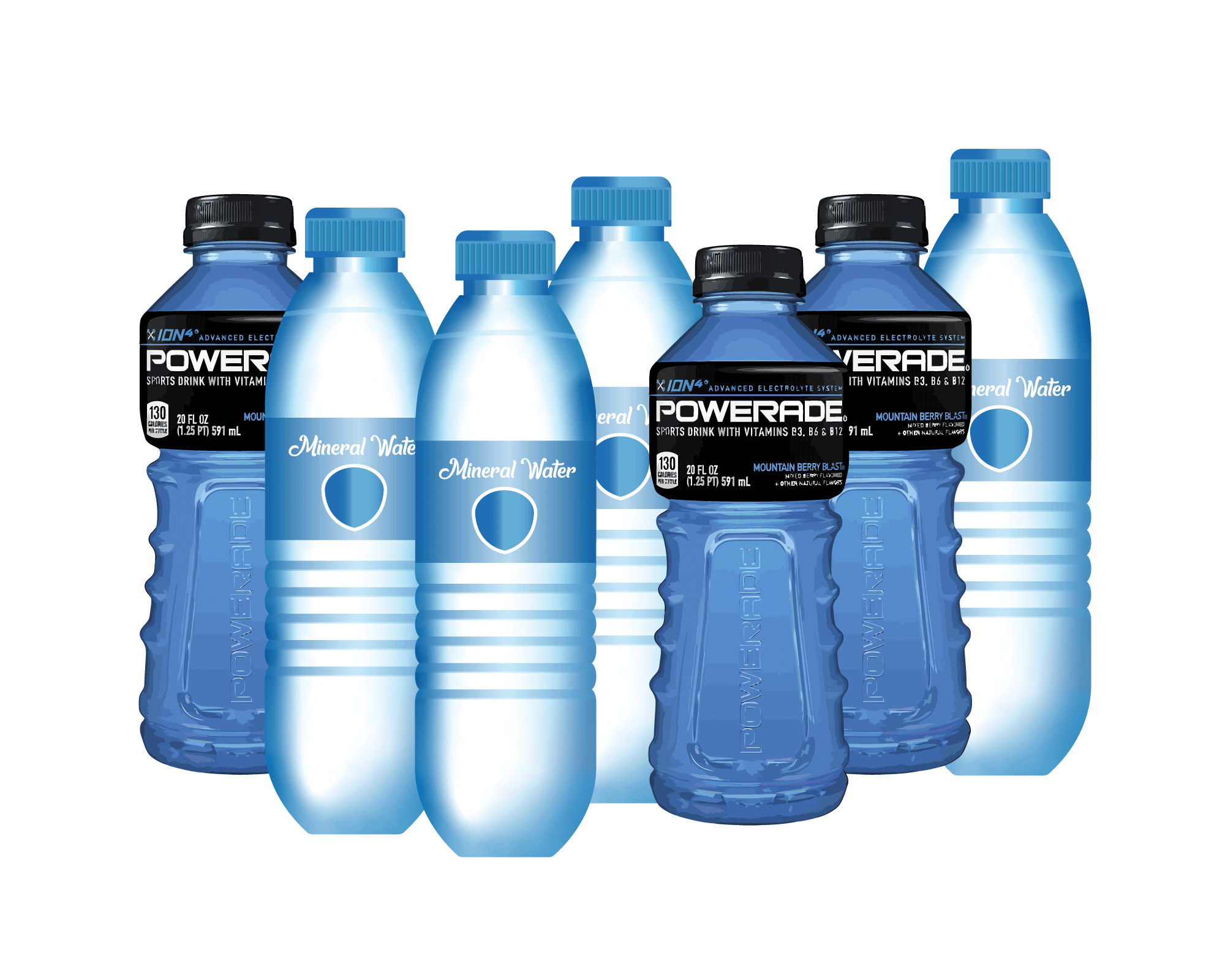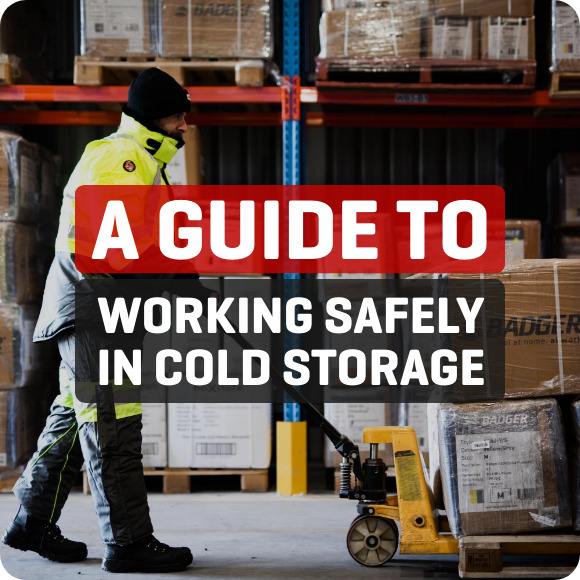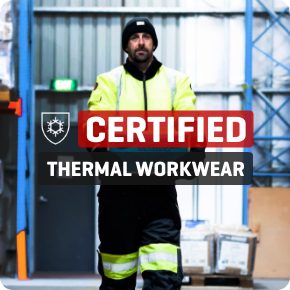

We all know that during winter the air is ‘dryer’ as humidity plummets. In cold stores and freezers, the air can be even drier.
The reason why humidity is monitored and regulated in cold stores is that foods are hygroscopic materials, so while their properties vary significantly with the temperature they’re in, the humidity of the environment effects them as well. Cold stores are constructed and sealed tightly to try efficiently regulate the environment. However, water (and the humidity that comes with it) is introduced when doors open, products or occupants off-gas or items are washed down. Cold stores have ventilation and HVAC systems to remove any water or humidity, and hence, cold stores are extremely ‘dry’ places to work.
Another thing is bear in mind is that the warmup rooms in cold stores are often constantly heated by air conditioning units, which pump out dry heat.
While it is not life-threatening, the dryness of the air on cold stores can pose a hazard to your health. This article will briefly go over these hazards, and then suggest some ways that you can stay safe and steer clear of the risks.
The health hazards of low humidity air in cold stores

Dehydration
Because the human body is 70% made up of water, it’s no surprise that cold, dry air can dehydrate your body. The dry air absorbs moisture from everything it can, including your skin, lungs, nose etc. Further to that, when you’re working in a cold store you may not feel thirsty because the cold can reduce your thirst response, and because your sweat evaporates quickly in a cold, dry environment, making you think you don’t need hydration. Read more about the importance of staying hydrated when you work in cold storage in this article.
Increased risk of colds and other infections
Exposure to low humidity air can dry out the mucous membrane (a natural barrier to particles and infections) that lines your respiratory tract. According to a research paper published by Environmental Health Perspectives, without this barrier your body is more vulnerable to the risks of colds, flu and other respiratory infections. Further to that, low humidity can allow certain viruses to survive for longer.
Dry skin and eyes
Your skin and eyes ‘drying’ out is probably the most obvious effect of working in a cold store’s low humidity air. Your throat, sinuses can become irritated and your eyes itchy.
How to avoid the risks of the dry air in cold stores
1. Keep hydrated
Keep drinking throughout your shifts and breaks, even if you don’t feel thirsty! Learn more about how your diet can help you stay safe in cold storage in this article. Wearing freezer wear that is breathable will also help you stay hydrated, as it reduces how much you overheat & sweat.
 2. Wear a balaclava or neck gaiter
2. Wear a balaclava or neck gaiter
Wearing a neck gaiter over your month increases the humidity of air you inhale as the warm moisture from your exhaling gets trapped in the material covering your mouth. These headwear items will help keep your head warm and help stop your mouth drying out at the same time.
3. Keep your skin hydrated
Using Omega-3 fat-based creams or something similar help prevent the dehydration of your skin. A small dab of nasal gel inside each nostril can help them not dry out in the cold, dry environment that a cold store presents.



